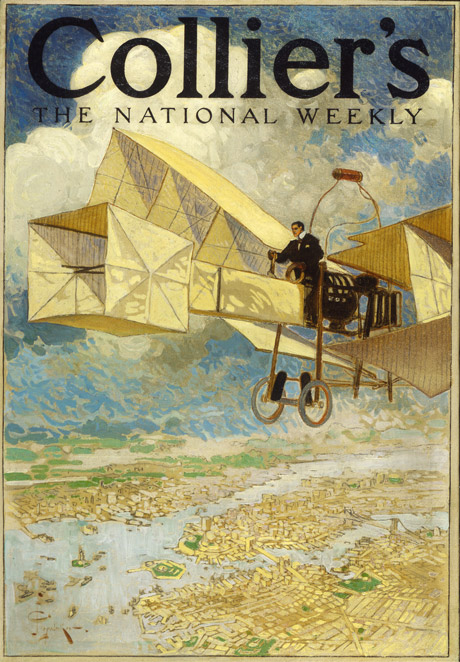In 2022, I emailed 158 art-related items to my members of my free Sunday Recommendations list. For supporters, I recommended 52 more items. This week: my favorites in the category of literature (novels, dramas, short stories, poetry). Two of these were originally shared only with supporters: they’re marked with a pair of asterisks.
This post is available as a video at https://youtu.be/BBITOPM8qJ4.
Novels
Winner:
- Francis, Dick. Hot Money (1987). The hero is a jockey; his father trades gold. Francis’s Banker, which I recommended a couple years ago, is also from the 1980s, when it was still conceivable to have a financial wizard as a hero. Almost all Francis’s main characters start out low key, but turn out to have intelligence and courage in abundance. If you’re already a fan, read about his writing routine here. NOTE: Dick Francis was one of the few authors whose books I used to buy in hardcover, and every decade or two I still reread all his novels. He has a sense of life that I very much enjoy. I tried a couple of the novels co-authored by his son Felix, and written by Felix after his father’s death in 2010: unfortunately those are not enjoyable enough for me to read.
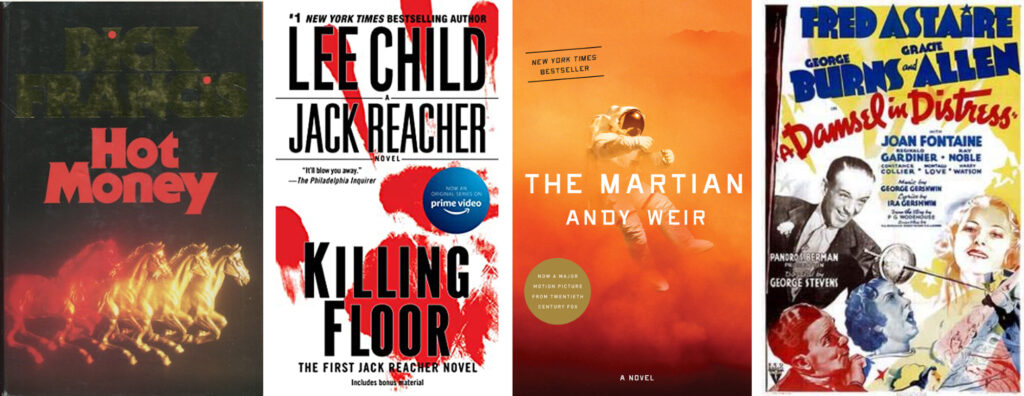
Runners up:
- Child, Lee. The Killing Floor (1997). I haven’t repeated a recommendation in the five years I’ve been making them, but this is a special case. The Reacher series on Amazon is based on The Killing Floor, which I read and enjoyed years ago. The current print and Kindle editions of Killing Floor have an introductory essay by Lee Child explaining how he came to write the Reacher books and why Reacher is as he is. For example, here’s Child telling us that he didn’t want to create a seriously flawed main character: “I wanted to start over with an old-fashioned hero who had no problems, no issues, and no navel-gazing. His physical competence is really an expression of his mental competence, too. He’s a fully-functioning person. And I thought it would be interesting to reverse the paradigm in terms of physical vulnerability. Usually, a book’s hero comes up against people he needs to be afraid of. What if, I asked myself, the hero is the toughest SOB in the valley and others need to be afraid of him?” You can read Child’s introduction via the “Look Inside the Book” feature on Amazon. Also: In rereading Killing Floor, I’m again very impressed with the way Child introduces details within the novel. For example, if you’ve seen the series and remember what’s going on in Margrave, Georgia, you’ll notice how Child builds up details as Reacher moves around the town.
- **Weir, Andy. The Martian (2011). An astronaut stranded on Mars must survive alone for months. The book, Weir’s first, exemplifies a new way of publishing. After rejections by agents, Weir published it in serialized format on his website. The Kindle version sold extremely well at $.99, drawing the attention of traditional publishers. Weir sold the audio rights in 2013 and the print rights in 2014. The book hit the New York Times bestseller lists in hardcover and paperback, won a Hugo, and has been translated to more than 45 languages. The 2015 film was eighth-highest-grossing that year. The movie was good (I like to see heroes on screen), but the book is better.
- Wodehouse, P.G. Damsel in Distress (1919). No summary can convey how hilarious Wodehouse is, so I’ll just give the premise: Wealthy American composer of musical comedies falls in love with the girl who leaps into his London taxicab, who as it turns out is in love with a different American, of whom her noble English family strongly disapproves. The novel was filmed as a silent movie in 1919, turned into a stage play in 1928, and in 1937 was adapted into a musical film starring Fred Astaire, Joan Fontaine, George Burns, and Gracie Allen, with music and lyrics by George and Ira Gershwin. The movie only loosely resembles the book, but if you like big bands, tap-dancing, Gershwin tunes, and elegance, I recommend it.
Drama
- Webster, Henry Kitchell. Mrs. Thornborough’s Apology (a.k.a. June Madness) (1912). The title character is a woman who has had a very successful business career for twenty years, starting in the 1890s. How unusual is that? This drama, one of my favorite works by Webster, was staged in 1912. It first appeared in print in my Collected Short Works of Henry Kitchell Webster, vol. 1 (pp. 163-285). If you enjoy the play, the Collected Works includes a number of related letters by and to Webster (pp. 286-299). More on Webster here. Another character in the play is a young man who’s building an airplane to out-perform the one first flown by the Wright Brothers in 1903 – which gives me an excuse for another Leyendecker image, this one from 1907, illustrating a Collier’s magazine article entitled “When Shall We Fly?” (That’s Manhattan below the plane.)
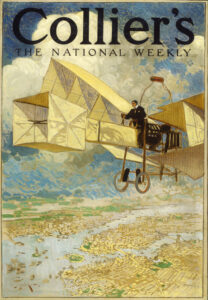
Short Stories
- **Milne, A.A. “A Lost Masterpiece” (1920). Is it fiction? I’m not sure. I thought all you Wordle fans might enjoy it.
Poetry
I asked myself: which of the poems I recommended last year do I most want you to reread, or to read for the first time, if you missed a week’s recommendations? I’ve included my favorite lines, as teasers, and a link to each of the complete poems.
My favorite poems this year fall into clusters. One group was inspired by the loss of a good friend and mentor in 2021. I resolved to make a point of telling my friends more often how much I appreciate them.
- Anonymous. “Touching Shoulders“. Excerpt:
Did you know you were brave, did you know you were strong?
Did you know there was one leaning hard?
Did you know that I waited and listened and prayed,
And was cheered by your simplest word?
Did you know that I longed for that smile on your face,
For the sound of your voice ringing true?
Did you know I grew stronger and better because
I had merely touched shoulders with you?
Related: Berton Braley, “Do It Now,” and Grace Dawson, “To a Friend.”
===
Another batch of poems was inspired by restlessness – while the economy is such a mess, I haven’t been traveling. Favorite among those:
- Garrison, Theodosia (1874-1944). “The Gypsying.” Excerpt:
I wish we might go gypsying one day before we’re old—
To step it with the wild west wind
And sing the while we go,
Through far forgotten orchards
Hung with jewels red and gold;
Through cool and fragrant forests where never sun may show,
To stand upon a high hill and watch the mist unfold—
I wish we might go gypsying one day before we’re old. …
Related: John Masefield, “Sea Fever,” Robert Louis Stevenson, “I Will Make You Brooches,” and Sara Teasdale, “Central Park at Dusk.” Illustration below: the island of Ithaca, on which see the Cavafy poem in Starry Solitudes, pp. 162-163.
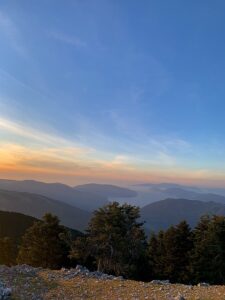
===
A third group has to do with setting high goals, even if they seem beyond my grasp.
- Garrison, Theodosia (1874-1944). “Compensation“. Excerpt:
Because I craved a gift too great
For any prayer of mine to bring,
Today with empty hands I go;
Yet must my heart rejoice to know
I did not ask a lesser thing. …
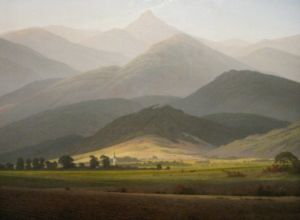
Related: Teasdale, Sara (1884-1933). “Mastery” (1917). My answer to politicians who promise to make life easier for all of us. Whole poem:
I would not have a god come in
To shield me suddenly from sin,
And set my house of life to rights;
Nor angels with bright burning wings
Ordering my earthly thoughts and things;
Rather my own frail guttering lights
Wind blown and nearly beaten out;
Rather the terror of the nights
And long, sick groping after doubt;
Rather be lost than let my soul
Slip vaguely from my own control –
Of my own spirit let me be
In sole though feeble mastery.
Also related: Emma Wheeler Wilcox, “The Winds of Fate,” and Edna St. Vincent Millay, “First Fig“.
==
I recommended several poems because I wanted to include them in Starry Solitudes. If they weren’t so familiar, they’d certainly be at the top of my favorites list for this year:
- Badger Clark, “The Westerner“
- William Ernest Henley, “Invictus“
- Rudyard Kipling, “If“
===
And finally: I can’t imagine living anywhere except the United States, but when we’re in yet another election cycle where all the candidates look equally bad, a poem like this resonates.
- Tennyson, Alfred Lord (1809-1892). “You Ask Me Why, Tho’ Ill at Ease“. Tennyson explains why he isn’t yet ready to move to sunny Spain (or Florida). There really is a poem for everything.
You ask me, why, tho’ ill at ease,
Within this region I subsist,
Whose spirits falter in the mist,
And languish for the purple seas.It is the land that freemen till,
That sober-suited Freedom chose,
The land, where girt with friends or foes
A man may speak the thing he will;A land of settled government,
A land of just and old renown,
Where freedom slowly broadens down
From precedent to precedent:Where faction seldom gathers head,
But by degrees to fullness wrought,
The strength of some diffusive thought
Hath time and space to work and spread.Should banded unions persecute
Opinion, and induce a time
When single thought is civil crime,
And individual freedom mute;Tho’ Power should make from land to land
The name of Britain trebly great—
Tho’ every channel of the State
Should fill and choke with golden sand—Yet waft me from the harbour-mouth,
Wild wind! I seek a warmer sky,
And I will see before I die
The palms and temples of the South.
More
- In 2022 I published 3 books: Starry Solitudes: A Collection of Inspiring and Thought-Provoking Poetry (98 poems I’ve recommended over the past five years); Sunny Sundays: Highlights of Five Years of Sunday Recommendations (more here); and Timeline 1900-2021: Events Worldwide, US Politics & Culture, Economics, Science & Technology, Books, Visual Arts, Architecture, Film & TV, Music (more here).
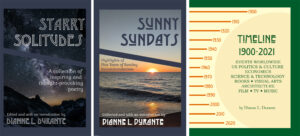
- For more of my writings, see the Books and Essays page. All my books are available in Kindle and/or print format via my Amazon author page. And check out dozens of videos from 2021 on my YouTube channel.
- For favorites from earlier years, see the Favorite Recommendations and Photos link.
- Want wonderful art such as these recommendations delivered weekly to your inbox? Check out my Sunday Recommendations list: details here.
